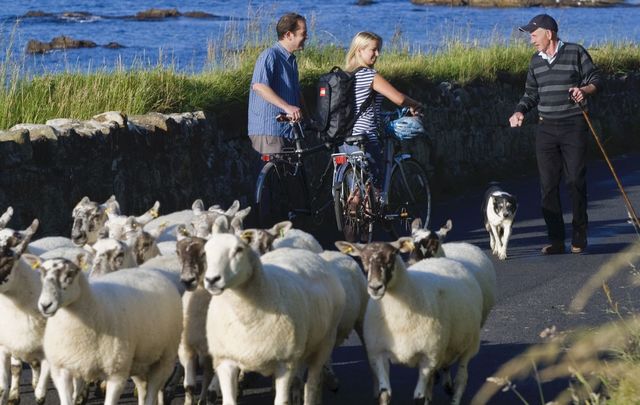From the author of The Little Book of Irishisms, here are some top tricks to make your sentences sound more Irish for your next visit to Ireland.
As the author of "The Little Book of Irishisms", Aimee Alexander, put it "God loves a trier." This extract from the book might just give you some tips and tricks on how to sound more Irish or it might help you understand Hiberno-English (how the Irish use the English language) a little bit better.
Alexander continues, in the book's introduction "You’ll learn handy tricks like putting the word “fierce” in front of any noun instantly Irishifies it e.g. “He’s a fierce eejit (eejit = idiot).”
"For maximum Irishness, add “altogether” and you’re away in a hack, so to speak. “He’s a fierce eejit, altogether.” See? Already some classics!" Sure you'll soon be speaking like a local.
Tricks to make your sentences more Irish
• Turn a sentence into a question e.g. “Sure, where would you be?”
This particular one means: “Could you be anywhere better than this?”
• For emphasis, add “altogether” after a noun at the end of a sentence e.g. “Isn’t he a fierce eejit, altogether?”
• Add “at all, at all,” to the end of a negative sentence e.g. “I’m not venturing out in that rain at all, at all.” Again, emphasis.
• Repeat short sentences connecting them with “so” e.g. “I am so I am.” “I did so I did.” Emphasis is strong with us.
• Make your verbs ongoing e.g. “What would you be wanting?” “I’m going to go.” “I’m going to have to do that again.” “Don’t be listening to him.”
• Precede a sentence with: “God.” “Jaysus.” “Sure.” “Ah, sure, look.” “Yera.” “Here.” e.g. “Here, give me that yoke (thing).”
• If you’re comfortable with expletives, choose Irish ones e.g. “Feck.” “Shite.” “Gobshite.”
• Use “me” instead of “my” e.g. “Aw, me head.”
• Use “ye” instead of you plural.
• Put “away” after an ongoing verb e.g. “I was chatting away with Mary.” We do this to emphasize that it was going on for a while.
• Use “after” in the past tense e.g. use “I’m after doing,” instead of “I have done.”
• Instead of, “I’ve just done that,” go for, “I’m only after doing that.”
• Some people put “do be” in front of a verb: “I do be eating.”
• Say “Come here,” or “Come here to me” or “Come here till I tell you,” or “C’mere I want ya,” before imparting information. It’s an instruction to lean in.
• Instead of “I’m not,” say “I amn’t.”
• Instead of “It is,” use “’Tis”.
• End a sentence with “all the same.” e.g. “Isn’t it grand weather, all the same?”
• End a sentence with “like” e.g. “You know, like.” In fact, you can liberally sprinkle your sentences with “like,” especially if you’re young.
• End a sentence with “boy” or “girl” if you’re trying to sound like you’re from Cork. You could also use “boyo” or less commonly “bucko” instead of “boy.” 2 7
* The Little Book of Irishisms: Know the Irish through our Words, by Aimee Alexander, is available on Amazon.




Comments